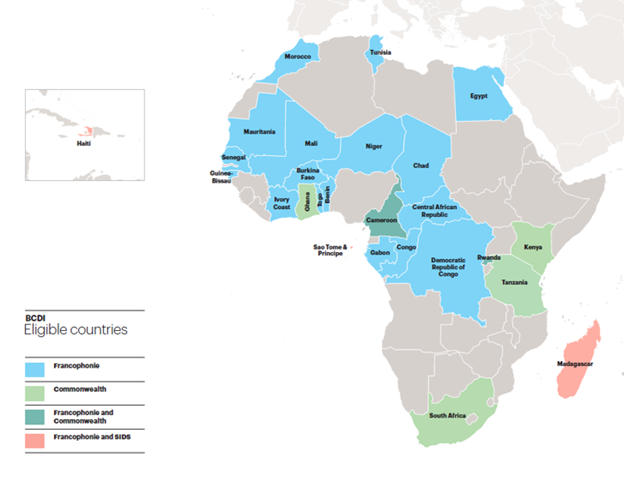Minister of Foreign Affairs Mélanie Joly, promoted the value of studying in Canada and the Canadian International Development Scholarship 2030 (BCDI 2030) program at the Sommet de la Francophonie (Francophonie Summit) in Djerba, Tunisia.
Announced earlier this year, the $80 million program funded by Global Affairs Canada will educate, train, and empower thousands of bright, talented people in developing countries.
Over the next eight years, the BCDI 2030 program will provide people in 26 developing countries (see map below) with high-quality, inclusive education and training opportunities, with the intention of addressing inequality, bettering their lives and their communities.
Colleges and Institutes Canada and Universities Canada are proud to jointly administer this ambitious new scholarship program in partnership with Union économique et monétaire ouestafricaine (UEMOA), the African Institute for Mathematical Sciences (AIMS) and the Association of African Universities (AAU).
BCDI 2030 will directly reach more than 7,000 people — 51% of whom will be women — in eligible francophone countries, Commonwealth countries and Small Island Developing States. Participants will be provided opportunities to learn about entrepreneurship and leadership development, or take part in other tailor-made and thematic training, in their own country/region or in Canada.
Training and education will focus on key priority areas such as science, technology, engineering and math (STEM); climate action; artificial intelligence; health sciences; green and blue economy; and governance and administration.
The program will leverage Canada’s post-secondary education network of 236 colleges and universities — 62 of which are francophone — and the long-standing partnerships that Canada’s post-secondary institutions have in developing countries.
Link to additional Canadian scholarship program information:
https://www.univcan.ca/media-room/media-releases/new-canadian-scholarship-program-addresses-inequality-in-developing-countries/



